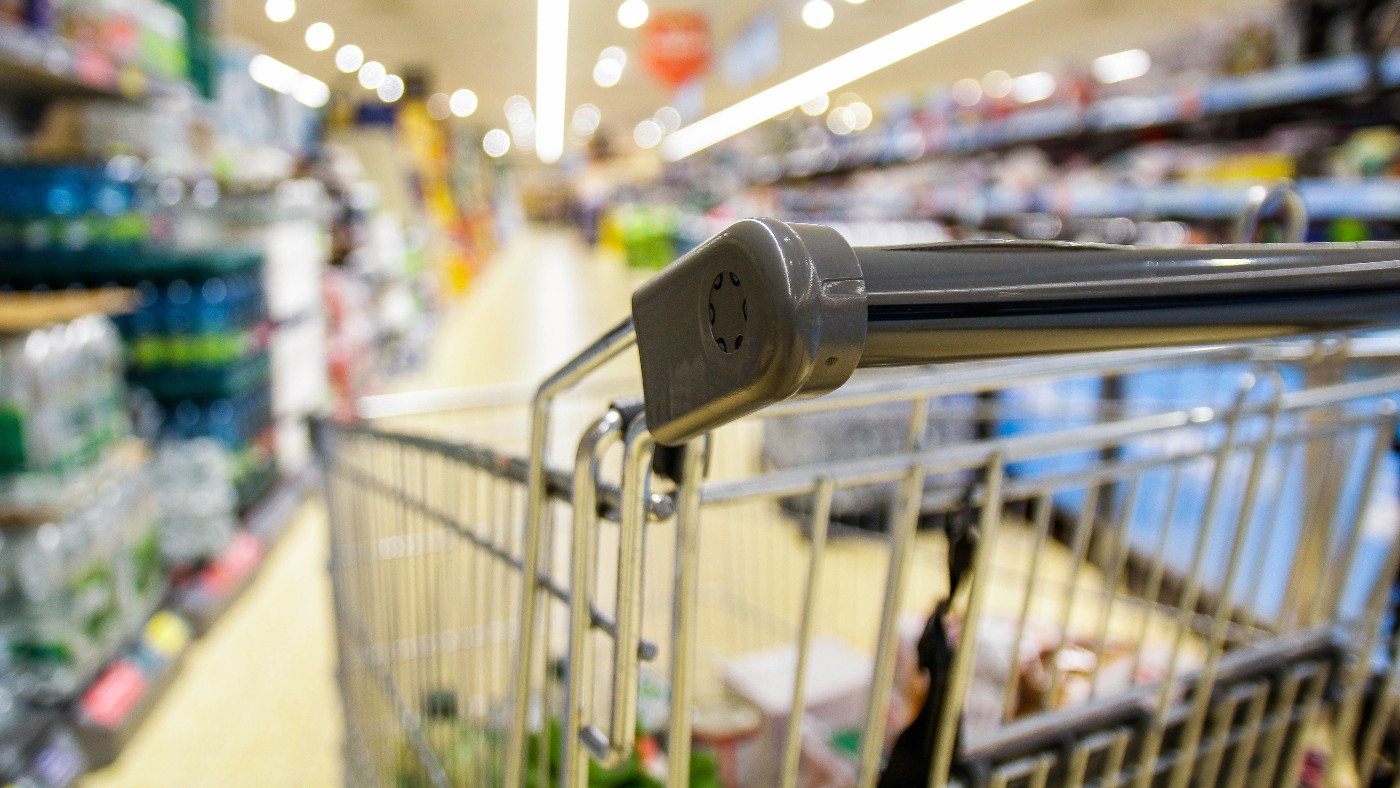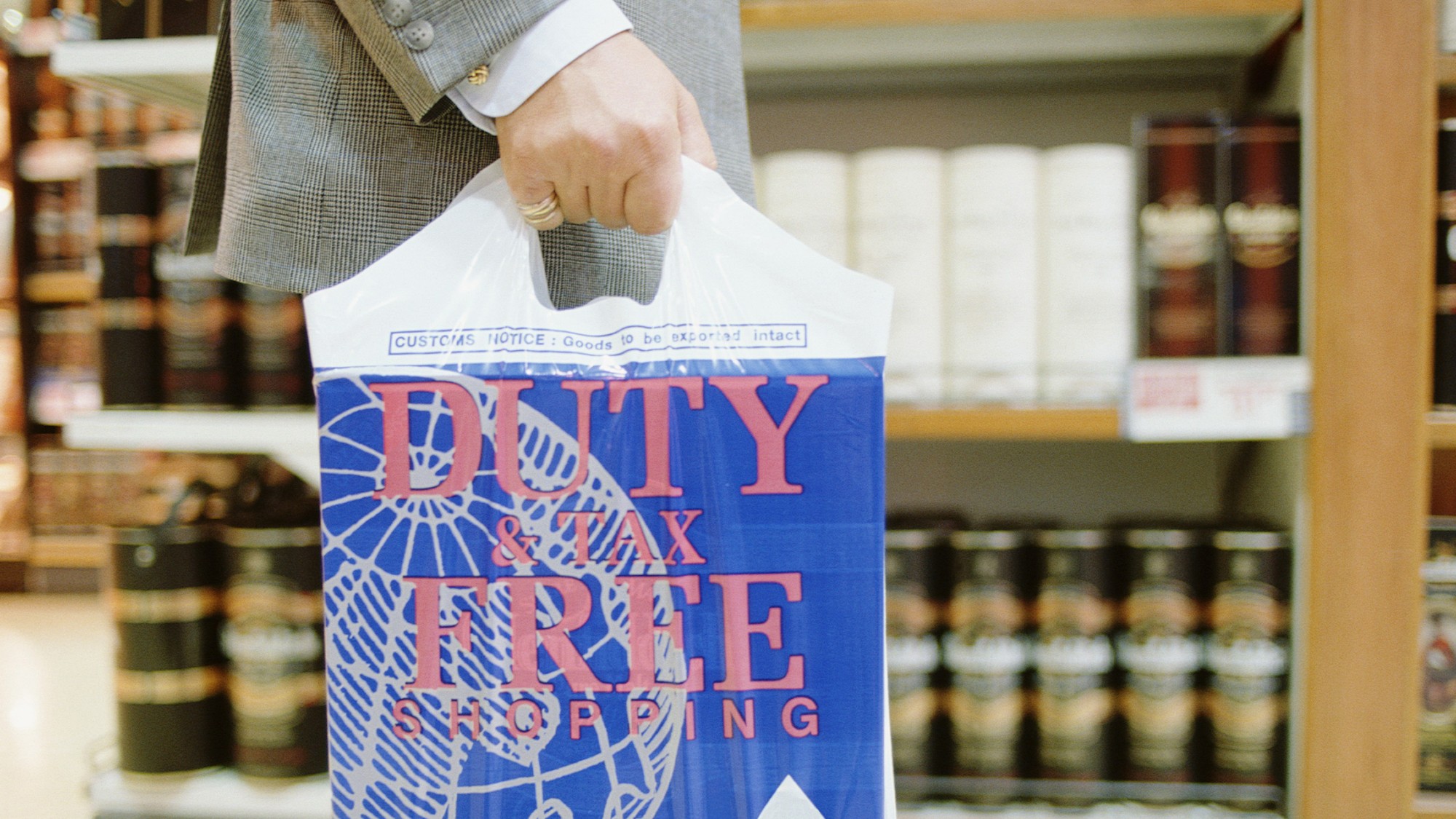How to save on your weekly shop
Knowing the best time of day to visit the supermarkets can boost your chances of snagging discounted items

A free daily email with the biggest news stories of the day – and the best features from TheWeek.com
You are now subscribed
Your newsletter sign-up was successful

Food and drink prices continue to climb in the UK, even while wholesale food prices fall. The disparity has prompted calls from the Liberal Democrats for an investigation into “supermarket profiteering”, said The Times.
According to the Office for National Statistics (ONS), the rate of food price inflation hit 19.2% in the year to March 2023 – the highest rate in more than 45 years.
Analysis by Which? also found that the price of basic groceries including butter, milk and cheese have soared by up to 30% year on year.
The Week
Escape your echo chamber. Get the facts behind the news, plus analysis from multiple perspectives.

Sign up for The Week's Free Newsletters
From our morning news briefing to a weekly Good News Newsletter, get the best of The Week delivered directly to your inbox.
From our morning news briefing to a weekly Good News Newsletter, get the best of The Week delivered directly to your inbox.
Even though the cost of putting food on the table remains stubbornly high, shoppers can save some money with a few savvy strategies.
Which foods are seeing the largest price hikes?
The ONS has a shopping prices comparison tool that lets users track how the average prices of over 450 food items have changed.
The milk, cheese and eggs products category has recorded one of the highest annual inflation rates in groceries throughout the past year, said the ONS, with figures showing a 30% increase in the 12 months to March 2023, slightly down from 31% in February.
Hard cheese saw the largest increase, with an annual inflation rate of 44%. In cash terms, hard cheese, Cheddar and soft cheese all increased by over £2.50 per kilo in the last year, with 1kg of hard cheese increasing from £6.92 to £9.98 in the 12 months to March 2023.
A free daily email with the biggest news stories of the day – and the best features from TheWeek.com
Meanwhile, the price of a dozen eggs increased by more than 77p over the same period, to £3.19.
Over the past year, cucumbers saw the largest price increase in a standard shopping basket, at 52%, the ONS said, while the price of a litre of olive oil is up 49% at an average increase of £1.91 to £5.78. The price of cucumbers has gone up due to rising energy and packaging costs, said The Grocer, and “a prolonged drought in top producer Spain” has pushed up the price of olive oil, explained CNBC.
Supermarkets are “brilliant” at making even the most cost-conscious consumers spend their “hard-earned cash”, said MoneySavingExpert, but “with a few focused techniques you could save £1,000s a year.”
Get savvy about sales tactics
“Wise up” to supermarkets’ “psychological tricks” to make shoppers spend more, said Which? researcher Ellie Simmonds. Stores use everything from “the smell of freshly baked bread” to “the sparkle of fairy lights in winter” to get customers feeling happy, because “the more comfortable someone is, the more they’re likely to spend.”
Holding your breath and closing your eyes while you shop isn’t really an option, but you can keep your spending in check by going in with a shopping list and sticking to it. MoneySavingExpert advises pre-planning your meals for the week or month ahead, and “incorporating the ingredients you already have” where possible rather than buying more.
Don’t go shopping when you are hungry, the website added, as “you’re more likely to buy things you don’t need.”
Time it right
Doing your food shop later in the day can “boost your chances of snapping up” items that have been discounted as they near their expiration date, said MoneySavingExpert. Supermarkets typically start the discounts from mid-morning, but the “silly price reductions” begin in the early evening, when price tags may be cut by 75% or more.
Check out the dedicated “reduced” sections, suggested The Money Edit. “The key thing is to snap up the bargains and if you don’t need them that day, pop them in the freezer.”
Strike the right deals
Stocking up when products that you use regularly are on offer can save lots of cash. But “do factor in use-by dates,” said Which? expert Simmonds.
And remember, The Money Edit warned, “buy-one-get-one free” offers can be a “false economy” if you end up buying things that you don’t really need.
Switch brands
Another way to cut costs is to swap big brands for supermarket own-brands, which are “often made by the same people in the same factories”, said Simmonds.
Savings made from switching brands “can really add up”, said The Money Edit. A block of Cathedral City Cheddar cheese (350g) costs around £3, the site reported in January, but Aldi’s Mild cheddar cheese (400g) was £2.69 and “cheapest still is Sainsbury’s Mary Ann version (500g) at £2.50”.
Most supermarkets also have various “different ranges of own-label products, from basic and value brands to premium”, added Simmonds, so there are further savings to be had by “moving down a tier – and often you won’t be able to taste much difference”.
Sign up for loyalty schemes
Most supermarkets have loyalty schemes and “they’re no longer simply about collecting points,” said Simmonds. Many now also offer loyal customers access to exclusive discounts, rewards and competitions.
The Sainsbury’s Nectar card is one of the longest-running loyalty schemes. Shoppers get one Nectar point for each £1 spent at Sainsbury’s, and can also get points for purchases from partner brands such as Argos and Homebase. One Nectar point is worth 0.5p, “so you need 200 Nectar points to save £1 to spend,” said The Sun’s consumer reporter James Flanders.
Rival stores including Lidl, M&S, Waitrose, Iceland and Morrisons also have loyalty schemes offering points or other perks, but the Tesco Clubcard stands out “as far as top picks go”, according to Flanders. Tesco shoppers get a point worth 1p for each £1 they spend, and “holders also get cheaper prices on some items.”
But of course, he added, “there’s nothing to stop you joining every scheme so you know you can get the rewards wherever you shop.”
Swap fresh for frozen
Frozen vegetables, meat and fish are often cheaper than fresh, as are ready meals, so “it pays to head for the freezer version,” said The Money Edit.
According to the site, a fresh beef lasagne costs around £3 at Tesco, “whereas if you head for the freezer aisle – and go for Tesco’s budget Hearty Food range – the same size lasagne costs just 75p.”
Shop around
Changing supermarket can save money too.
A Which? analysis in January of the prices of a basket of 45 popular items at eight of the UK’s biggest supermarkets found the lowest cost was at Aldi, at £82.03 on average, followed by Lidl, at £84.07. At the other end of the spectrum was Waitrose, at £107.71.
The Trolley app can help you compare the cheapest supermarket for your food shopping based on a range of items, plus you can get alerts when prices change.
If you are buying a regular basket or trolley of goods, said MoneyWeek, “it is worth comparing costs as the savings throughout the month can be significant.”
Marc Shoffman is an award-winning freelance journalist, specialising in business, property and personal finance. He has a master’s degree in financial journalism from City University and has previously written for FTAdviser, ThisIsMoney, The Mail on Sunday and MoneyWeek. This article is based on information first published on The Week's sister site, The Money Edit.
Marc Shoffman is an NCTJ-qualified award-winning freelance journalist, specialising in business, property and personal finance. He has a BA in multimedia journalism from Bournemouth University and a master’s in financial journalism from City University, London. His career began at FT Business trade publication Financial Adviser, during the 2008 banking crash. In 2013, he moved to MailOnline’s personal finance section This is Money, where he covered topics ranging from mortgages and pensions to investments and even a bit of Bitcoin. Since going freelance in 2016, his work has appeared in MoneyWeek, The Times, The Mail on Sunday and on the i news site.
-
 ‘Poor time management isn’t just an inconvenience’
‘Poor time management isn’t just an inconvenience’Instant Opinion Opinion, comment and editorials of the day
-
 Bad Bunny’s Super Bowl: A win for unity
Bad Bunny’s Super Bowl: A win for unityFeature The global superstar's halftime show was a celebration for everyone to enjoy
-
 Book reviews: ‘Bonfire of the Murdochs’ and ‘The Typewriter and the Guillotine’
Book reviews: ‘Bonfire of the Murdochs’ and ‘The Typewriter and the Guillotine’Feature New insights into the Murdoch family’s turmoil and a renowned journalist’s time in pre-World War II Paris
-
 How your household budget could look in 2026
How your household budget could look in 2026The Explainer The government is trying to balance the nation’s books but energy bills and the cost of food could impact your finances
-
 How will tariffs affect shopping this holiday season?
How will tariffs affect shopping this holiday season?the explainer Prices may not be so holly jolly this year
-
 Is duty-free shopping worth it?
Is duty-free shopping worth it?the explainer How to determine whether you are actually getting a good deal
-
 With economic uncertainty, 2025 looks to be a 'No Buy' year
With economic uncertainty, 2025 looks to be a 'No Buy' yearIn the spotlight Consumers are cutting back on splurges to combat overconsumption
-
 How much should you spend on holiday gifts?
How much should you spend on holiday gifts?The Explainer Let your personal budget be your guide
-
 Online shopping scams to look out for and how to avoid them
Online shopping scams to look out for and how to avoid themThe Explainer Black Friday is a busy time of year for scammers
-
 Can 'slow shopping' help you spend less this holiday season?
Can 'slow shopping' help you spend less this holiday season?The explainer You may feel pressured to act fast in order to get the best deals — but this can lead to superfluous spending
-
 3 tips to lower your household bills
3 tips to lower your household billsThe Explainer Prices on everything from eggs to auto insurance to rent have increased — but there are ways to make your bills more manageable